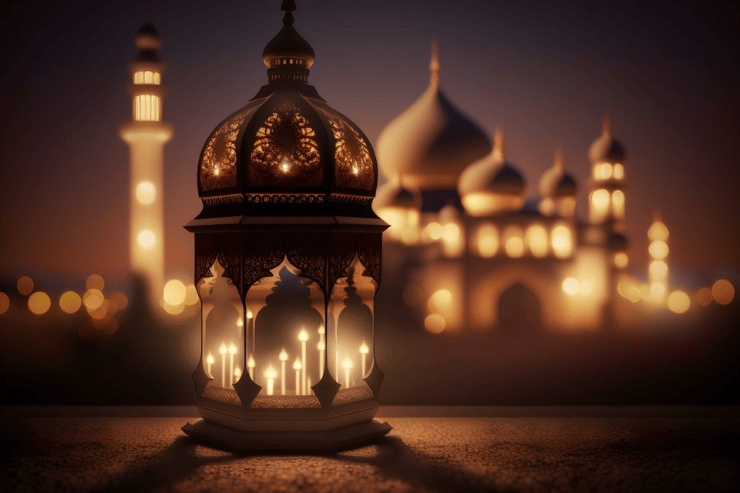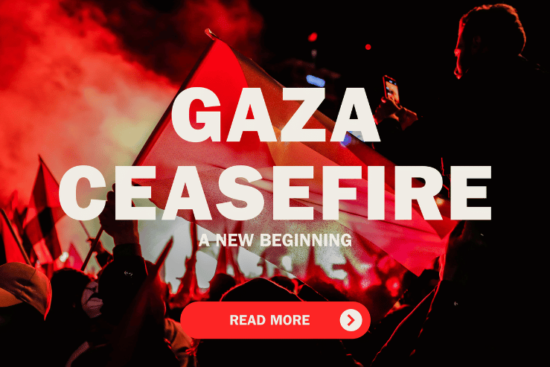
The month of Ramadan is meant to purify the mind, soul, and body. This is the month in which the Holy Quran was revealed. It is narrated that:
“When Ramadan enters, the gates of Paradise are opened, the gates of Hellfire are closed, and the devils are chained”.
– Al-Bukhari and Muslim
If we talk about science and studies, it is discovered that fasting can improve your health, help you live longer, increase your energy, and have many other benefits.
During Ramadan, Muslims do various things to increase their Emaan, and Taqwah, and bonding with Allah Almighty.
Important things to know:
In 2024, Ramadan is expected on “11 March”.
1. Fasting (Roza): In this month Muslims avoid eating, drinking, and other physical needs from fajr to maghrib as worship.
2. Prayer (Namaz): Muslims complete their 5 daily prayers, and perform special Taraweeh prayers at night.
3. Quran Recitation: Muslims dedicate time to reading the Holy Quran, making the target to complete its recitation at least once during Ramadan.
4. Charity (Zakat ): Muslims try to give charity as much as they can during Ramadan, or provide additional Sadaqah to those in need.
5. Forgiveness: Muslims forgive all people, seek forgiveness for their past sins, and repent sincerely believing in Allah’s mercy.
6. Suhoor and iftar: Muslims break their fast on Azan e Maghrib called Iftar and begin their fast on Azan e Fajr called Suhoor. Sharing these meals with family.
7. Good Deeds: Muslims try to perform acts of kindness, generosity, and goodwill towards others.
8. Zikr and Dua: Muslims engage in the Zikr of Allah and make Dua, seeking closeness and guidance throughout the month.
9. Listening Bayyan: Muslims focus on spiritual development and understanding the significance of Ramadan by listening to the “Bayyan”. of Ullama Ikraam.
10. Self-Improvement: Ramadan provides an opportunity to set goals and make positive changes in lives to carry these habits forward beyond the month of Ramadan.
Ashra:
There are 3 stages of Ramadan called Ashra and each lasts for 10 Days. 1st Ashra, 2nd Ashra and 3rd Ashra.
1st Ashra:
“Rehmah“ is the starting Ashra of Ramadan. In this Ashra, Muslims should seek Allah’s mercy and praise him. Dua for first Ashra is:
يَا حَيُّ يَا قَيُّومُ بِرَحْمَتِكَ أَسْتَغيثُ
2nd Ashra:
“Maghfirah“ is the middle Ashra of Ramadan. In this Ashra, Muslims should seek forgiveness from Allah Almighty for their past sins. Dua for second Ashra is:
اَسْتَغْفِرُ اللہَ رَبِّی مِنْ کُلِّ زَنْبٍ وَّ اَتُوْبُ اِلَیْہِ
3rd Ashra:
“Nijat“ is the last Ashra of Ramadan. In this Ashra, Muslims should seek safety from hellfire. Dua for the last Ashra is:
اَللَّهُمَّ أَجِرْنِي مِنَ النَّار
Blessed Nights in Ramadan:
Muslims believe that ” Layla tul qadr” happens on one of the odd-numbered nights in the last Ashra of Ramadan like the 21st, 23rd, 25th, 27th, and 29th of Ramadan. Most Muslims celebrate this on the 27th of Ramadan by praying special, eating sweets, and by meet greet with their relatives. On these nights, our Prophet (S.A.W) spent a lot of his time worshiping, Dua and Zikr. It is narrated by our Prophet (S.A.W) :
“Whoever prays on Laylatul Qadr out of faith and sincerity, shall have all their past sins forgiven”.
– Bukhari and Muslim
The importance of these nights is again narrated in the Holy Quran:
“The Night of Decree is better than a thousand months. The angels and the spirit descend therein by permission of their Lord for every matter. Peace it is until the emergence of dawn.”
– Quran: 97:3-5



Leave a Reply